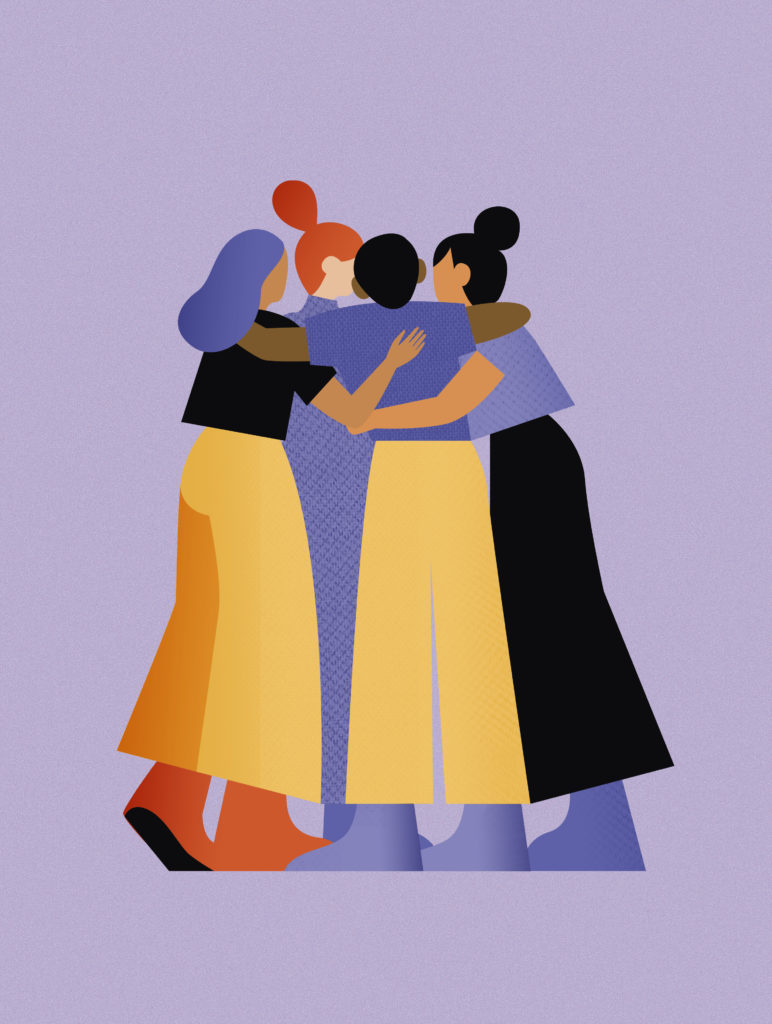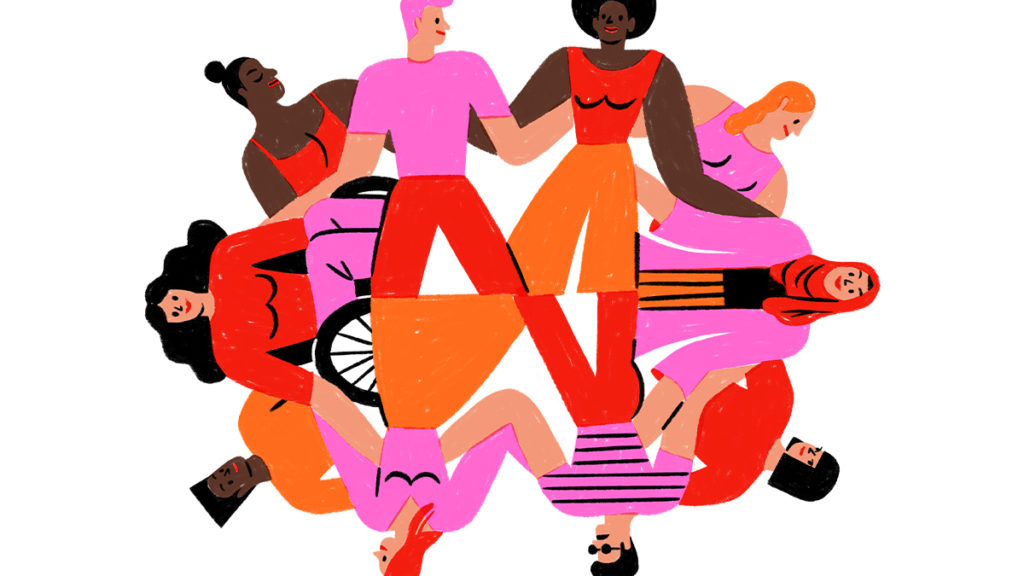Systemic Justice’s central premise is that communities should be in the lead when it comes to using litigation in their campaigns for justice. We also centre communities in determining what we will work on as an organisation: we take our cue from those at the community level on racial, social, and economic justice and contribute where the most pressing need is felt.

To understand communities’ priorities and perspectives, we started our work last year by conducting a Europe-wide mapping of priorities in racial, social, and economic justice. We did this out of necessity: there were no sources available from which it was possible to get a rich and deep community perspective – much of the reports, research, and other sources that touch upon issues of human rights and social justice in Europe speak about communities resisting injustices, but do not reflect their perspective. Mindful of this problematic dynamic – communities as an object of study – and wanting to avoid an extractive approach, we took great care in trying to undertake this consultation in a way that was respectful of the communities we engaged with and ensured they could access and use the outputs in their own work.
What follows below is not an exhaustive blueprint, nor do we claim that we got it all right. But we are working hard to incorporate our learnings along the way as we build our work with community partners and believe it is important to share openly so we can all work to do better.
Accessibility
- Don’t assume everyone speaks English or has the time to translate materials, information, etc. that you send them in your working language. We made sure that key ways to engage with the community consultation process, such as the needs assessment survey we had open, were available in multiple languages. During the roundtable sessions, interpreters supported participants who were less comfortable engaging in English, and we made sure that key materials shared ahead of and during the sessions (agenda, participants’ lists, slides) were translated into their preferred language.
- Don’t assume everyone likes to communicate through e-mail. Not everyone likes to write or can find the time to formulate a detailed e-mail. We made sure people could share their thoughts with us via voice notes, messaging apps like Signal and WhatsApp, and social media.
- Make your gathering accessible (and ask people how you can make that happen). Make sure to ask about and address additional needs people have beyond language interpretation to facilitate their participation. Think through how people might engage with, say, an online session and what this requires from them. If necessary, provide people with the technological aides they need to support their engagement, but do think outside the box. Can sending people a dongle to have better internet connection help? Will getting childcare support allow them to focus on the session? If they are only able to join via a phone or tablet, how do you make sure they can still engage with slides, surveys, and so on?
- Share information in different formats. Both beforehand – for example, an agenda with visual aids concerning meeting platform settings, during – mix conversation with opportunities to draw or get creative in other ways, and after – share key findings not only via a blog, but also think about illustrations and animations.
Trust and confidentiality
- Share information in an anonymised way or ask for permission. Sharing key findings along the way is great for transparency and engaging a wider constituency in the work. We shared reflections from each roundtable session on our blog, and eventually published a report of our findings from the overall consultation. In doing so, we only attributed quotes and views expressed after asking explicit permission from the person in question. We shared takeaways at high-level and never shared details of who we engaged with and how, unless we had obtained participants’ consent.
- Be thoughtful in your design. It is crucial to be conscious of how we ask people to bring their experiences into the consultation space, and make clear that this work is undertaken to support understanding of the work they do, rather than for extraction. This requires careful communication, having 1:1 conversations ahead of time to answer questions and concerns, and addressing all questions that might come up during sessions.
- Allow people to land safely into the space. We cannot know what people’s context might be at that time, or what may have happened prior to their arrival. Take the time to build trust and create space for forging connections. Before getting into the substance, we took time for introductions, a grounding exercise, and setting out the context for the meeting again (even if this was shared ahead of the gathering at several points, people have a lot going on and may not have all that information at the ready). Breaks (and sticking to the times allocated for them in the agenda) are important to allow people to recover, take a breath, and navigate other demands on their time that might be pulling on them in parallel to the session.

Transparency
- Be clear about your objectives and intentions. Don’t assume everyone is keen on joining your hours-long Zoom meeting. Also, just because you are excited about your project, doesn’t mean everyone else is. And that is fine! Be clear about why you are inviting them to engage and what the expectations are; and ask people what they need from the process in turn.
- Be clear about what will happen with people’s input. How will information be shared, with whom, and what will people’s agency be in this process? Share your aspirations and goals for this sharing – in our case, it was a way to support moving towards solidarity and coalition building.
Respect
- Recognise that people may get distracted. People working in local or community groups may at times be called away from the consultation process due to competing demands, responding to emergencies, etc. Don’t be judgemental!
- Value, recognise and appreciate people’s time. It means a lot that people make time to engage with something you initiate and are generous in sharing their personal stories of resistance. We offered participants in our roundtable conversations an honorarium and sent everyone a care pack. In setting up the conversation, we also made sure to build on information we already had – we avoided asking people to repeat things or getting “confirmation” of precooked conceptions. It was also important to check back in with participants about the conclusions we were drawing from the consultation: before we finalised any findings, we hosted validation workshops so participants could provide feedback on the view we thought was emerging. Sharing the findings back was another important aspect: we were mapping communities’ perspectives on systemic injustices, so they should be able to use these findings for their own work.
We hope these reflections can help in disrupting and countering the common, extractive dynamics that tend to underpin research projects attempting to capture the experience and knowledge of communities resisting racial, social, and economic injustice.
We acknowledge that this is not a comprehensive blueprint, and there are numerous ways we could be doing better. We also accept that implementing some aspects of this blueprint requires resources. This, however, does not mean we shouldn’t try to do better. At the time of our first ever Europe-wide consultation, our organisation was just a few months old, and we were still fundraising to finance the process. Despite limitations on our resources, we recognised that pushing for a different way of running this type of consultation was not optional, but a necessity. Where possible, for example with translation and captioning, we tried to source no or low-cost ways of meeting the principles of accessibility, trust, confidentiality, transparency, and respect. But we also made sure to budget for community support generously and transparently in our funding applications. Funders also have a role to play in ensuring organisations, movements, and collectives can work with realistic budgets to run radical reimaginings of consultation processes that can deliver on these principles. We need to stop the studies of communities that do not properly reflect and honour their perspectives.
